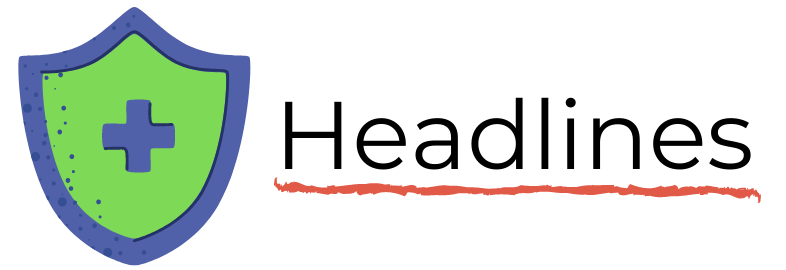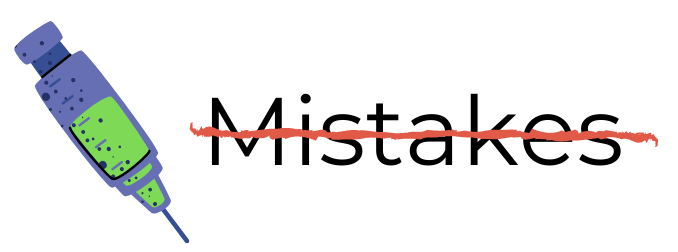Good morning! It has been 401 days since the first documented human case of COVID-19.
Today has headlines and reader comments, as well as my earnest wish that you enjoy your holidays—safely.
I will be taking the 25th off from writing; I’ll write you all again on Monday.
As usual, bolded terms are linked to the running newsletter glossary.
Keep the newsletter growing by sharing it! I love talking about science and explaining important concepts in human health, but I rely on all of you to grow the audience for this:
Now, let’s talk COVID.
Additional doses of Pfizer-BioNTech vaccine secured for the US
Pfizer and BioNTech announced today that they’ve reached an agreement with the US government to supply an additional 100 million doses of their vaccine to the US by July 31st 2021. This is great news, since previously the entire supply of this vaccine until July was already spoken for: https://www.pfizer.com/news/press-release/press-release-detail/pfizer-and-biontech-supply-us-100-million-additional-doses
Record number of COVID hospitalizations in US
Unfortunately that news comes as the winter in the US continues to get darker. Right now, something like 1 in 5 US hospitals have reached 95% or more ICU occupancy, as seen in this story from the New York Times: https://www.nytimes.com/interactive/2020/12/23/us/covid-rising-icu-capacity.html
Meanwhile as of the time I write this, the COVID-19 Tracking Project says that there are over 119,000 COVID-19 patients hospitalized in the US: https://covidtracking.com/data
Look, things are really bad in the US right now, worse than they have ever been by far. If you live here, you all need to stay safe and pay attention to what your local authorities are recommending. If your local authorities are not leading well, please look at local data and make the best decisions that you can. When in doubt, stay home. It is not worth dying when a vaccine is just around the corner for most of us.
This applies to Christmas. I want you have happy holidays, and I wish you could all be with your families. But it’s just not safe.
What am I doing to cope with the pandemic? This:
“Jewmas”
For years…I don’t even know how many anymore, but it’s at least 10…myself and a group of my Jewish friends have gotten together to marathon movies and eat Chinese food while the rest of the world does something involving a tree. I’m not really sure of the details, but the day this happens, everything is typically closed so we decided to do this instead.
COVID-19 has threatened to disrupt that tradition, but we’ve chosen to adapt. We’ll be streaming at least one movie together to mark this, uh, “holiday,’ and getting together remotely in true 2020 fashion.
Reader Carl Fink left the following question:
Hey, John: can you comment on the AstraZeneca/Gameleya cooperation agreement announced recently? As a virologist who works for Big Pharma, you might have insights, I figure.
One question that occurs to me: why bother? By the time they can validate a combined protocol of their two vaccines, won't there be 8 or so vaccines already approved and on the market? I figure two or three from China, J&J, Novavax, and at least three others.
Carl is talking about this story: https://www.forbes.com/sites/roberthart/2020/12/11/astrazeneca-oxford-to-create-combination-covid-19-vaccine-with-russias-sputnik-v/
My reply is a bit long, because it’s a good question:
Good question, but I do have to clear up that I don't really work in "Big Pharma." I work at a relatively small scale independent biopharma company. In the past I've been a supporting scientific services vendor for Big Pharma companies like Novartis and Pfizer, though.
I think this type of collaborative agreement is extremely common in the business. If you have a treatment that works well and someone else has a component that works well also, then it's not a difficult argument to make that you should try to see if they work better together. I expect to see a lot of these types of agreements made between various entities that are developing vaccines.
In the case of Gamaleya and the AZ/Oxford vaccine, the combination makes even more sense because it's clear that immune reactions to the scaffold virus used to build these chimeric vaccines interfere with the quality of the immune reaction to the presented SARS-CoV-2 antigens. By combining them, they might have a way to create double the SARS-CoV-2 signal with half the off-target signals, and hopefully improve both vaccines. Remember that AstraZeneca's vaccine worked best when patients were primed with a half-strength dose. Perhaps by working in combination with the Sputnik V vaccine, they can get an even better result built off that finding.
"Why bother" is a good question. Let's keep in mind that we don't really know for sure what the duration of immunity induced by these vaccines will turn out to be. COVID-19 is very likely here to stay, and if reinforced immunity is required every couple of years, a vaccine is going to be an in-demand product. What's more, it's possible that any of these candidates will induce longer-lasting immunity than the others. The ballgame isn't finished.
That said, it's important that these companies finish their trials soon. As the first-to-market vaccines get introduced to new populations, it will become ever more difficult to find patient groups that can still be ethically enrolled in placebo-controlled trials. Instead, whoever is latest to the party is going to have to conduct "noninferiority" trials in comparison with active vaccination. That will be a harder bar to pass. So the faster these companies get their agreements in place, the better, so they can get their trials finished. Also, there's the benefit that this gets vaccines to market for all of us to use a lot faster than if they could afford to wait.
That said, I think everyone is underestimating the way that the entire vaccination industry will change as a result of COVID-19. I'll note here that I have a long-term stock position in Moderna as well as Pfizer, which I initiated over the summer, partly because of the advance that these vaccines represent beyond just COVID-19. mRNA vaccines have the potential to completely change how vaccination works, especially routine vaccinations that are currently conducted using protein subunit vaccines. mRNA vaccines can be made quickly and cheaply and redesigned with ease. A lot of vaccines that are on the market right now could work much better in this format. I think that Pfizer and Moderna's unexpected magnitude of success with these two vaccines makes it very hard to predict "what happens next" based on the traditional assumptions that are made in the industry regarding vaccine development. I'm not sure I really can predict what comes next after this.
One thing I think we can bet on is that not all the vaccine candidates are going to do as well as the Pfizer and Moderna candidates have so far. As other candidates mature to results, we'll see how much need remains for additional vaccines and regimens. Clearly AstraZeneca and Gamaleya think that there will be quite a lot of need.
I think it’s hard to predict how the story will evolve with the world of vaccination as well as COVID-19 specifically. Thankfully, I don’t intend to shut down this newsletter anytime soon, so you should hear about it here.
You might have some questions or comments! Send them in. As several folks have figured out, you can also email me if you have a comment that you don’t want to share with the whole group.
I’ve been contemplating changing the schedule of this newsletter a little bit; perhaps reducing it from daily to 3 times a week. I’m interested in your thoughts; feel free to comment publicly or send them my way privately.
Thank you to those who answered me about this already; I’m taking all of the feedback under consideration.
Join the conversation, and what you say will impact what I talk about in the next issue.
Also, let me know any other thoughts you might have about the newsletter. I’d like to make sure you’re getting what you want out of this.
Part of science is identifying and correcting errors. If you find a mistake, please tell me about it.
Though I can’t correct the emailed version after it has been sent, I do update the online post of the newsletter every time a mistake is brought to my attention.
No corrections since last issue.
See you all next time. Happy holidays!
Always,
JS







To clarify, "Big Pharma" was meant as a joke. I'm sure John and I have similar attitudes about the antivaxxer conspiracy theorist "alt med" people.